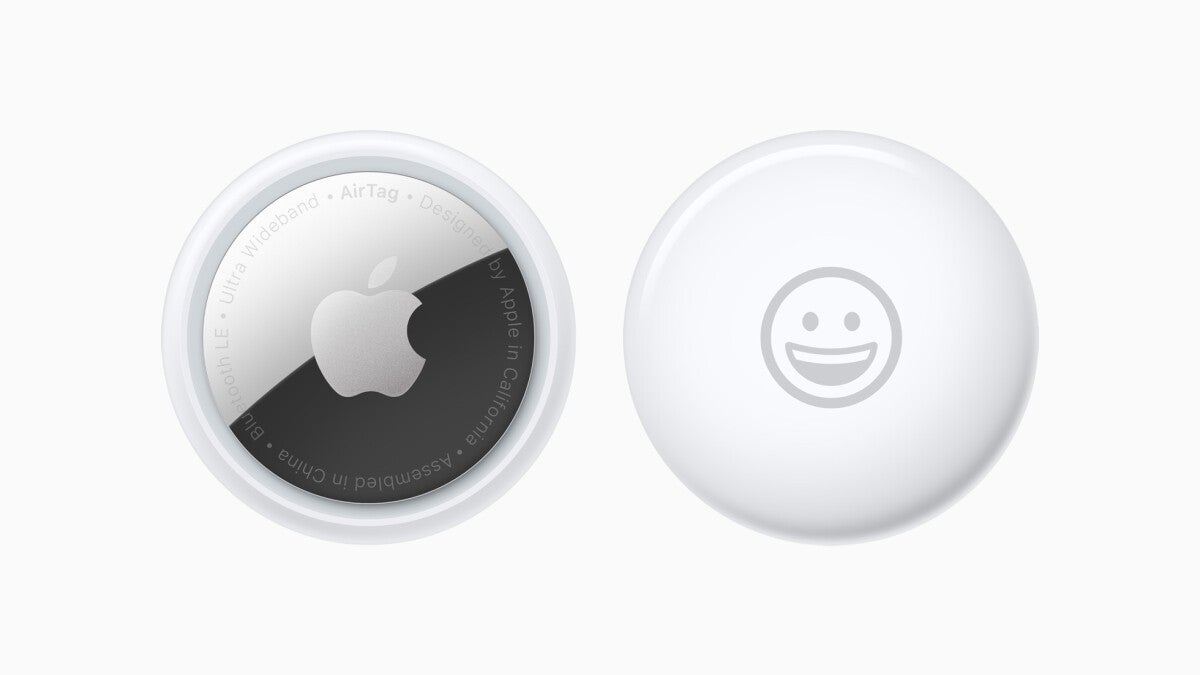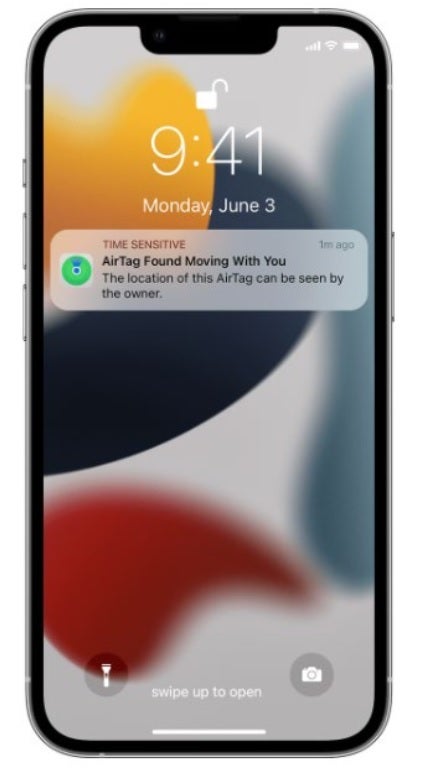Judge says Apple must face a lawsuit over the use of AirTag units to stalk victims

Apple is going to have to face the music over the use of its AirTag item trackers as a tool used by stalkers to, well, stalk their victims. A judge in San Francisco ruled that Apple must take the role of defendant in a class action lawsuit that accuses the tech giant of negligence by allowing its AirTag to be used by stalkers. Yahoo says that even though the vast majority of the three dozen claims made in the class action suit were dismissed by the judge, he refused to grant Apple the dismissal it requested.
US District Judge Vince Chhabria declined to allow Apple to walk because of the three plaintiffs who claimed that "when they were stalked, the problems with the AirTag's safety features were substantial, and that those safety defects caused their injuries." The plaintiffs argue that Apple had plenty of advanced warnings that the AirTag trackers could be misused by stalkers. That would make the company potentially liable under California law according to the plaintiffs. Apple, of course, disagrees.
The lawsuit says that the AirTag has "become the weapon of choice of stalkers and abusers"
The lawsuit, which was filed in Northern California district court, says that the AirTag item trackers have "become the weapon of choice of stalkers and abusers." In the initial lawsuit, the plaintiffs wrote, "Apple's design of the AirTag was defective because the product did not—and does not—perform as safely as an ordinary consumer would have expected it to perform when used or misused in an intended or reasonably foreseeable way."

If an unknown AirTag is moving with you, you will see this notification and can make the rogue tracker play a sound
To combat the use of AirTag item trackers as a stalking tool, Apple added a feature that has an AirTag make a loud sound when it is a certain distance from its owner. If an AirTag is separated from its owner and is moving with you over time, you will receive a notification warning you about this. If we can just take a break from this story for a second, if you receive a notification that an unknown AirTag is traveling with you, tap on the notification and then tap on "Play Sound." Follow the sound to find the AirTag that is tracking you. Apple and Google are also working together to fight against the use of item trackers as stalking tools.
However, Android users might be more at risk of getting stalked by an AirTag. As the lawsuit says, "Thus, individuals who do not own iPhones, iPads, or iPod Touches are thus more
vulnerable to being tracked using an AirTag. Android mobile devices have a 41.9% market share in the United States, meaning that almost half of America's population would not receive any notification if they were being stalked by an AirTag."
vulnerable to being tracked using an AirTag. Android mobile devices have a 41.9% market share in the United States, meaning that almost half of America's population would not receive any notification if they were being stalked by an AirTag."
AirTag trackers do not connect to the internet; instead, they utilize Bluetooth technology
The suit explains how the AirTag works. "AirTags are not themselves connected to the Internet. Instead, they utilize Bluetooth technology, emitting Bluetooth signals to any Apple device that is nearby. In turn, those Apple devices report where an AirTag has last been seen. Once an AirTag is identified as being near an Apple device or multiple Apple devices, the devices act as crowdsourced beacons, pinging with the AirTag to locate it for the AirTag's owner. The owner sees the AirTag on a map, and as they get closer to the AirTag, the owner switches interfaces and is directed with an arrow, sending them right to the AirTag."
Bluetooth has a range of about 30 feet. As the plaintiffs note, "for an AirTag to be identified by an Apple device, it must come within 30 feet of that device, at which time, the AirTag will have been located on Apple’s network of iPhones, iPads, iPods, etc. that are owned and used by consumers in the United States. This network is vast: as of 2017, 64% of Americans owned an Apple product."
Follow us on Google News












Things that are NOT allowed:
To help keep our community safe and free from spam, we apply temporary limits to newly created accounts: